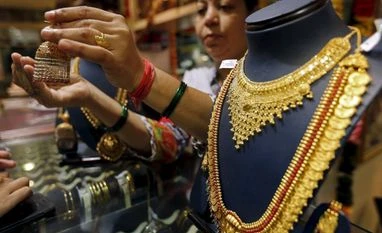Innovative methods and import of jewellery evading customs duty increases margins. And, channels in the hawala (informal transfer) market have moved to currencies other than the dollar, helping reduce the premiums.
GFMS said unofficial import in 2014 was 187 tonnes; in 2015, it fell almost 25 per cent to 142 tonnes. The report also noted an increase by way of importing gold legally without paying duty, with the objective of exporting it and later diverting the same to the domestic market under the disguise of work in progress. This means gold diverted for value addition will come back to export units and be formally exported later, which in real terms never happens. What is interesting is how the cost of smuggling was cut. This was necessitated after removal of import restrictions, which reduced premiums for physical delivery and, hence, reduced smugglers' margins. GFMS' survey says in 2014, the hawala rate, at which foreign currencies were bought to pay for unofficially imported gold, rose as much as 4.5 per cent.
For, dollars were usually bought in hawals and gold smugglers were paid. In 2015, many dealers shifted from dealing in country currencies from where such unofficially imported gold was to be sourced and hence the hawala rate came down.
This has also led to flourishing of unregistered money transfer agents, popular among the Indian diaspora who were sending money home. And, their cost has also came down, says the report. “The syndicates involved in gold smuggling are believed to work in diversified businesses, which include gold smuggling and heroin smuggling, thus helping to build a wider but closed network of agents and carriers.”
About gold smuggling in different forms, it said 10-tola bars (nearly 100g) were not as popular as in 2014 but high volumes of 22-24 carat jewellery, other than refined bars, were routed through the Bangladesh, Nepal and Myanmar borders.
You’ve hit your limit of {{free_limit}} free articles this month.
Subscribe now for unlimited access.
Already subscribed? Log in
Subscribe to read the full story →

Smart Quarterly
₹900
3 Months
₹300/Month
Smart Essential
₹2,700
1 Year
₹225/Month
Super Saver
₹3,900
2 Years
₹162/Month
Renews automatically, cancel anytime
Here’s what’s included in our digital subscription plans
Access to Exclusive Premium Stories Online
Over 30 behind the paywall stories daily, handpicked by our editors for subscribers


Complimentary Access to The New York Times
News, Games, Cooking, Audio, Wirecutter & The Athletic
Business Standard Epaper
Digital replica of our daily newspaper — with options to read, save, and share


Curated Newsletters
Insights on markets, finance, politics, tech, and more delivered to your inbox
Market Analysis & Investment Insights
In-depth market analysis & insights with access to The Smart Investor


Archives
Repository of articles and publications dating back to 1997
Ad-free Reading
Uninterrupted reading experience with no advertisements


Seamless Access Across All Devices
Access Business Standard across devices — mobile, tablet, or PC, via web or app



)
